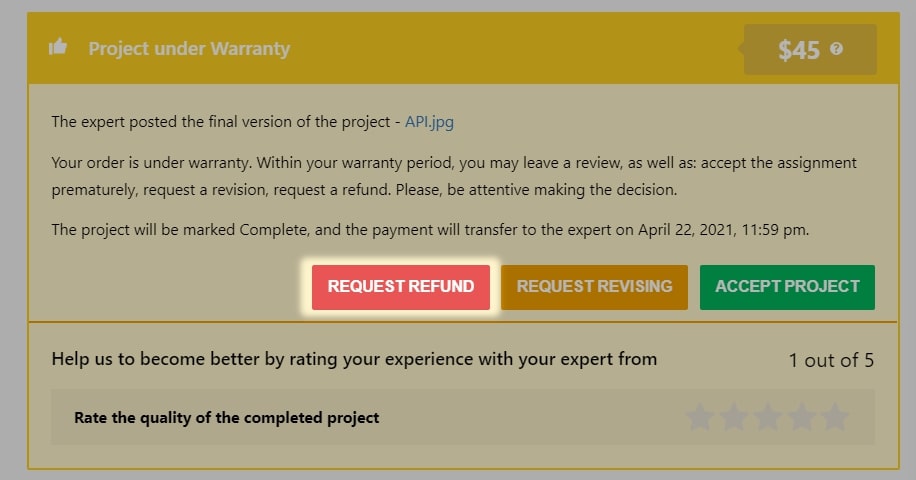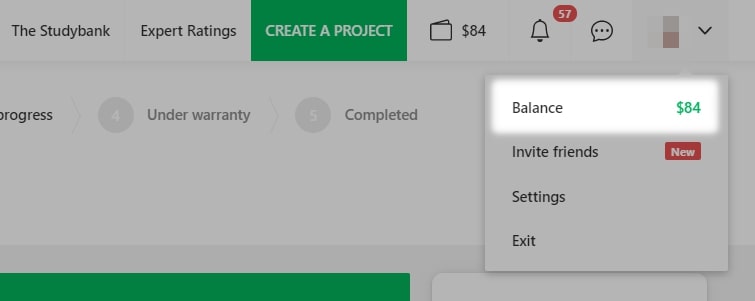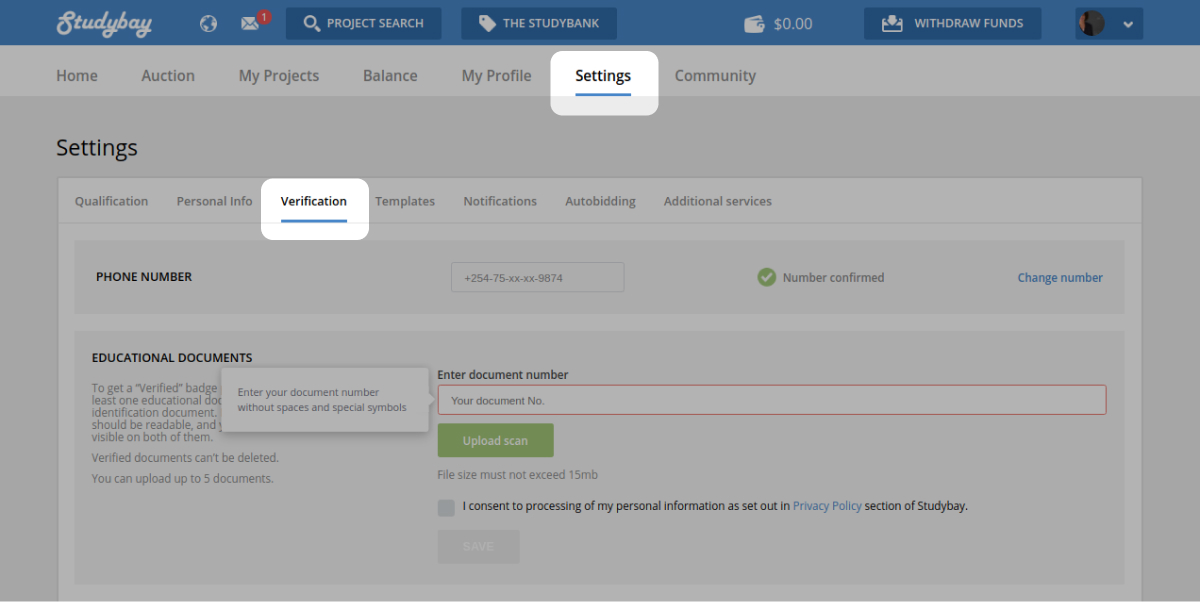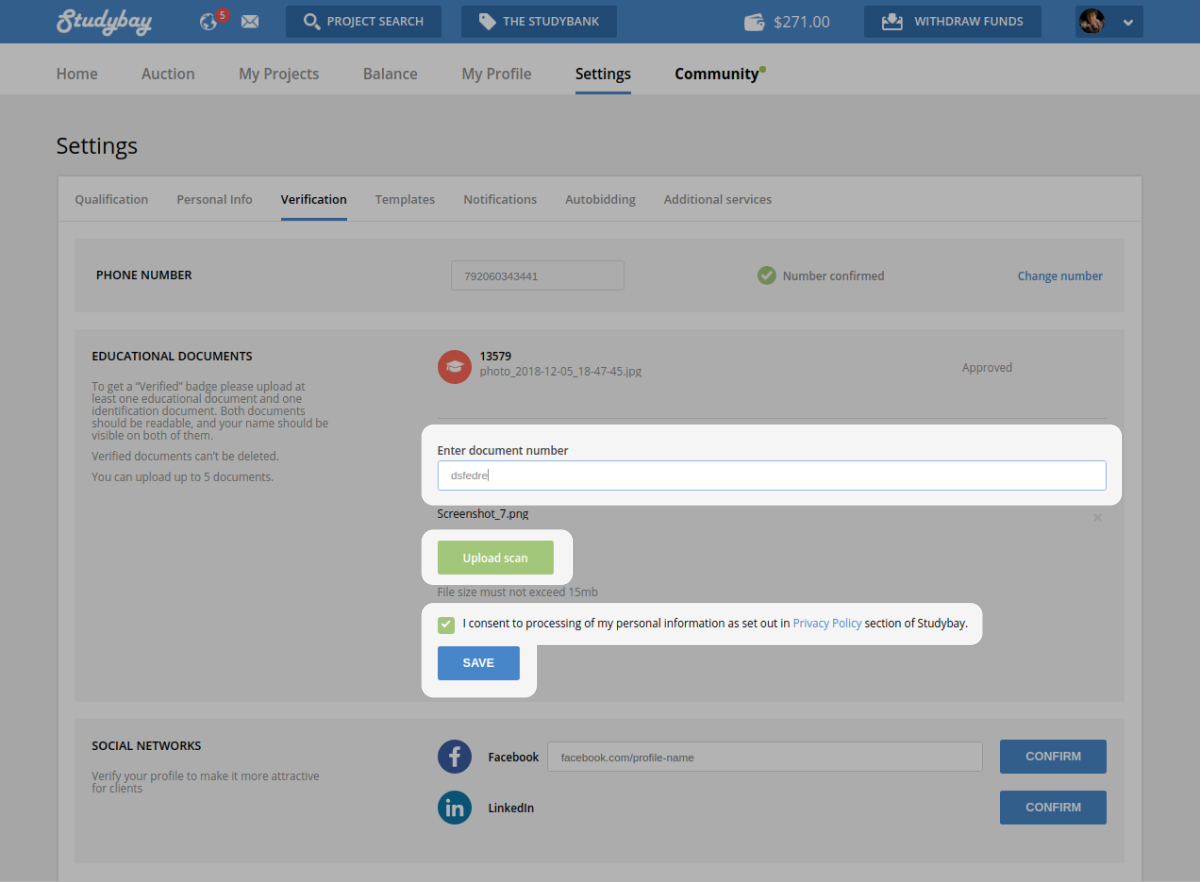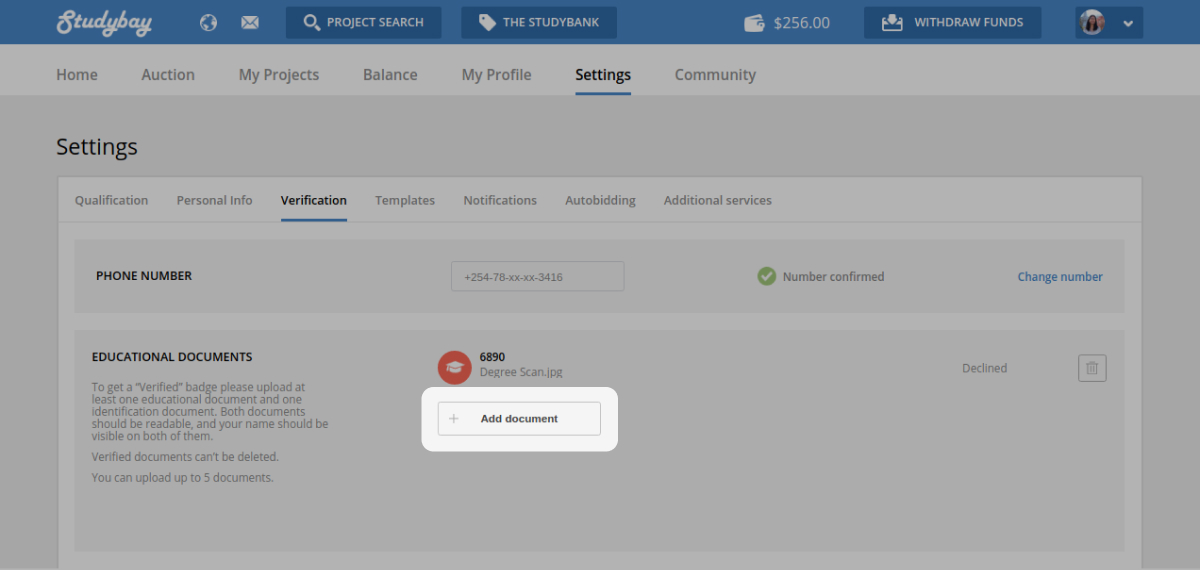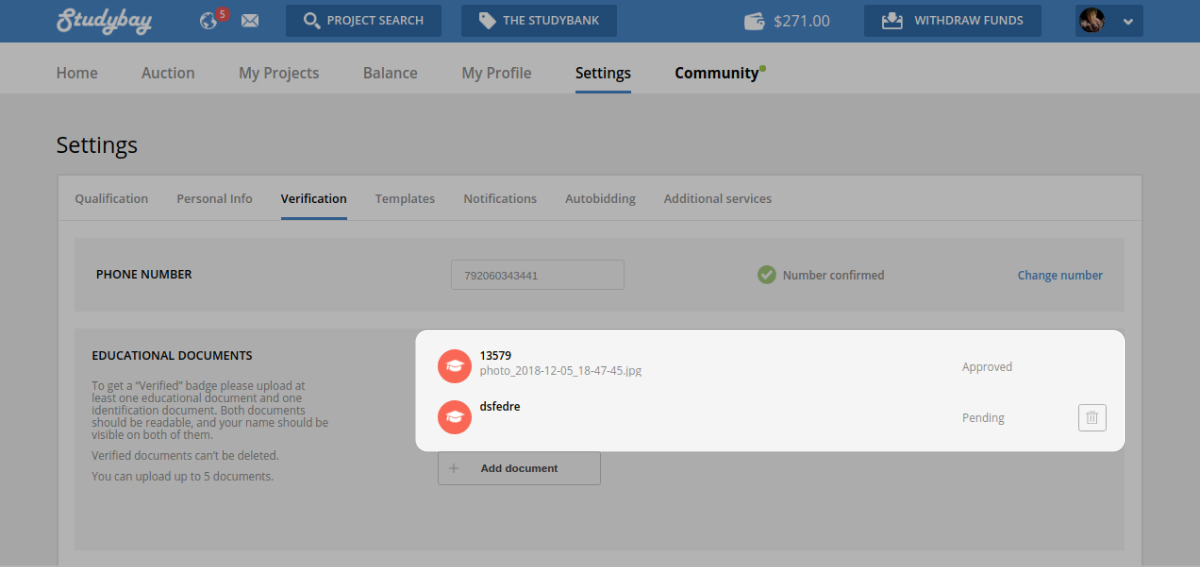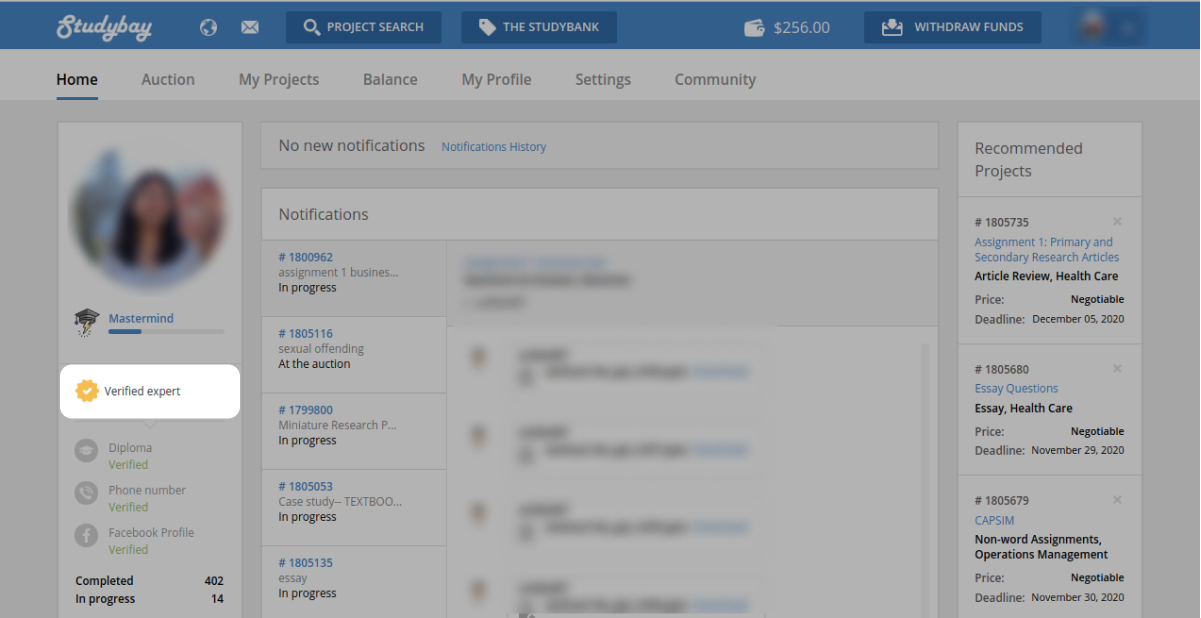On Studybay, experts are ranked by clients on a 5 point scale. An average value is a decimal number and is used to form the average user rating. This rating reflects if the expert is capable of delivering projects on time, if their projects get refunded, and if clients generally like cooperating with them. Each expert’s rating is recalculated daily and takes the last 150 completed projects into account.
There is a number of additional factors that may increase the expert’s rating:
- Positive reviews by clients;
- No overdue projects;
- No refunds issued for the projects;
- Confirmation of completing projects halfway to the deadline;
- A high percentage of confirmations when taking new projects.
The expert’s rating and their bids are the most important factors affecting the possibility of being chosen by the clients. So every expert needs to complete their projects on time and provide high-quality final files to avoid getting refund requests.
If the expert has less than three completed projects, they’ll have a “Newbie” tag next to their username. Their rating will be calculated and visible for the clients only after they complete three projects.
To maintain the quality of our service, our new experts have some restrictions:
- New experts on Studybay can’t upload any files to the projects at the auction before they start working on these projects;
- New experts on Studybay can’t work on more than four projects at the same time.
How’s the rating calculated
The expert’s rating is calculated with the help of the following formula:
If the result doesn’t fall into the range between 1 and 5, it gets a value of 1 or 5, whichever is closer to the result.
So, the rating calculation for the project “i” (xi) goes like this:
First, a base rating “xi” is calculated. There are two possibilities.
- That the client has rated the expert’s completed project. In this case, the base rating “xi” equals the rating given by the client.
- That the warranty period has expired, but the client hasn’t rated the expert’s completed project. In this case, base rating “xi” equals 5 by default.
Then, the base rating may be modified by various coefficients due to negative factors, such as:
- Completing the project after the deadline: xi=xi-0.5
- Not confirming working on the project halfway to the deadline: xi=2
There are two exceptional cases: if the expert hasn’t confirmed their progress due to a valid reason, has taken the project back, and has carried it out; or if the expert has already uploaded the final paper and has completed the project.
Issuing the refund for the project:
- A full refund (100%) to the client: xi=1;
- A split one between the client and the expert: “xi” gets a value between 1.0 and 4.5, depending on what percentage has been refunded to a client (fully crediting the project to the expert: xi=4.5).
Also, there’s a complexity coefficient of the project “i” that matters: a complexity coefficient indicates the complexity of the completed project and is associated with the project price.
To prevent any abuse of the rating system, all the projects priced less than $5 get a complexity coefficient close to zero. The coefficient increases up to 0.9 for projects costing up to $40. And for the projects priced more than $150 this coefficient equals 1.5.
Additional factors that can affect project complexity:
- Any rating set by a client’s feedback is more valuable than the rating set automatically. If the user rating for a project has been set automatically, for this project i=i*0.7.
- If the expert has completed a project marked as “premium”, for this project i=i*2.
- Additional positive and negative factors (nj and pm) may be applied to a calculated rating if:
- the expert often declines new projects after bidding and being hired (more than 30%): -0.5;
- the expert confirms more than 95% of projects when hired: +0.1;
- refunds have been issued for more than 20% of the projects completed by the expert: -0.4;
- the expert has more than 20% overdue projects: -0.4.
Top experts
On “Top Experts” page, Studybay experts are separated by their specialty, then sorted based on general rating and the number of completed projects on the selected subject. Each subject has its own Top Experts feed. The expert’s position is calculated with the help of the following formula:
Experts are placed on the “Top Expert” feed for a certain subject only if they have completed projects on that subject or have set this subject as their specialty on their profile. Experts tagged as “Newbie” can also appear on this feed if they complete projects on the selected discipline. If the expert hasn’t set a certain subject as their specialty and the expert has no completed projects on that subject, they won’t appear on the “Top Experts” feed for that subject.
















